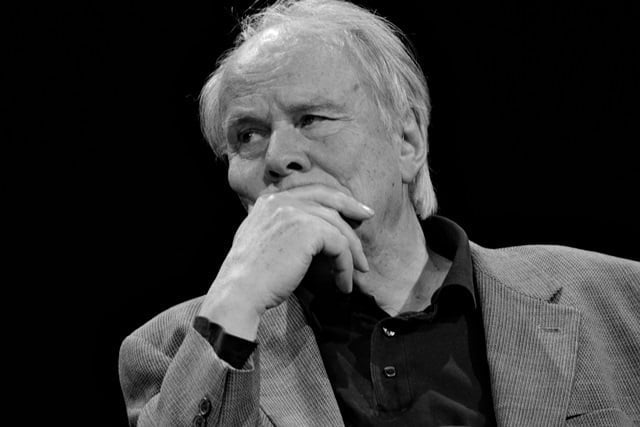
Hans Christoph Buch
Hans Christoph Buch was born in Wetzlar, in 1944. He grew up in Wiesbaden, Marseilles and Copenhagen. After giving a reading to Group 47 when he was nineteen, he was given a grant to attend the Literary Colloquium in Berlin. He studied German language and literature and Slavonic at the Free and Technical Universities of Berlin and, in 1972, received his PhD supervised by Walter Höllerer. He went on to work as a reader for the publisher Rowohlt and became co-founder and editor of their magazine »Literaturmagazin«. Buch taught at the Universities of Bremen and Essen in the seventies, and was a guest professor in California, New York and Texas. He travelled to West Africa and South America to give lectures and readings.
Buch brings together literature and politics as a novelist, essayist and reporter. His short story collections and literary essays were followed by his first novel, »Die Hochzeit von Port-au-Prince« (1984; »The Wedding at Port-au-Prince«, 1986), the first volume of his »Haiti Trilogy«. Here, first-hand, detailed descriptions and references to literary and cultural history are interwoven with insights into the life of Buch’s grandfather, who emigrated to Haiti and married an indigenous woman, as well as the lives of other migrants. In the nineteen-nineties Buch worked as a war correspondent, mainly in Africa, for several newspapers including »Die Zeit« and »Die Welt«. Collections of his reports on certain hotspots and war zones, as well as travelogues, reveal Buch to be a sharp and harsh observer who chooses to highlight ambivalences and grievances rather than participate in the »social romantic glorification of the Third World«, as he put it in his novel »Kain und Abel in Afrika« (2001; tr: Cain and Abel in Africa). In his novel »Apokalypse Afrika oder Schiffbruch mit Zuschauern« (2011, tr: Apocalypse Africa or a Shipwreck with Onlookers), the author once again throws a poetic eye on post-colonial Africa. In his novel »Tod in Habana« (2007; tr: Death in Havana) the downfall of the death-driven protagonist is an allusion to Thomas Mann’s »Death in Venice« and an analogy for the city’s physical and moral decline and the country’s disastrous political situation. Most recently, with »Das rollende R der Revolution« (2008; tr: The rolling R of revolution), the author gives us a glimpse, at once subjective and sophisticated, into the social and political structures of certain Latin American countries.
Buch is also a editor, translator and moderator of literary and political discussions as well as a commentator on contemporary issues. In 2008, in an open letter to German President, Horst Köhler, he drew attention to the proved crimes of Rwandan military dictator, Paul Kagame. In 2011, together with Peter Schneider, André Glucksmann and Bernard-Henri Lévy, he published the »Mehr Europa wagen« manifesto (tr: Have the Courage for More Europe) in reaction to the Euro debt crisis, a passionate appeal for the political utopia, Europe. The author is an Officier de l’Ordre des Arts et des Lettres. In 2004, he was awarded the Prize of the Frankfurt Anthology. He lives in Berlin and near Gorleben in the Lüchow-Dannenberg region.
© internationales literaturfestival berlin
Suhrkamp
Frankfurt a. M., 1984
Kain und Abel in Afrika
Volk & Welt
Berlin, 2001
Tod in Habana
Frankfurter Verlagsanstalt
Frankfurt a. M., 2007
Reise um die Welt in acht Nächten
Frankfurter Verlagsanstalt
Frankfurt a. M., 2009
Apokalypse Afrika oder Schiffbruch mit Zuschauern
Eichborn
Frankfurt a. M., 2011
Baron Samstag oder
das Leben nach dem Tod
Frankfurter Verlagsanstalt
Frankfurt a. M., 2013
Boat People
Literatur als Geisterschiff
Frankfurter Verlagsanstalt
Frankfurt a. M., 2014
